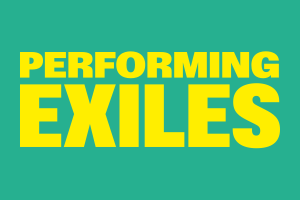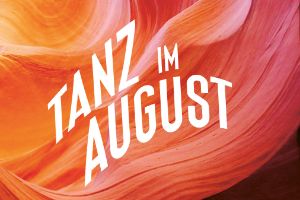
Addresses
Berliner Festspiele
Schaperstraße 24, 10719 Berlin
Gropius Bau
Niederkirchnerstraße 7, 10963 Berlin
Closed on Tuesdays
RusImport
2012
For twelve days, the Haus der Berliner Festspiele was playing host to Russian artists to mark the occasion of the 2012/2013 German-Russian Year.
This is not much time for a country as vast as Russia, and a country so steeped in tradition as well as in contradictions. RusImport provided an impression: artists, film and theatre directors, musicians, writers and above all three generations of Russian stage artists showed Germany where Russia is heading, or at least where it has been – contemporary art from Moscow and St. Petersburg, and the newest voices from a diverse artistic scene that has always had close links to Germany and Berlin in particular.
For Bertolt Brecht, the director Evgeny Vakhtangov was the pioneer of the Russian theatre scene, and just a few weeks ago his most famous pupil died – Pyotr Fomenko. Vakhtangov’s concept of theatre was nowhere followed more closely than in the Fomenko Studio, one of the most popular theatres in Moscow. In Fomenko’s Studio, theatre is an exuberant affair: light, ironic, musical, inventive and imaginative. We invited one of the most famous Fomenko productions to kick off our programme series.
Hot on its heels was a work by Dmitry Krymov. A set designer and visual artist by trade, over the last ten to fifteen years this director has created some of the most surprising and idiosyncratic theatre productions in Moscow. The work presented here was a surreal journey through the political, literary and aesthetic history of the Soviet Union – Krymov’s theatre is bursting with images, metaphors and symbols that result in a unique story about the disturbing tragedies and satyr plays of this global empire.
AKHE, which emerged out of the St. Petersburg underground scene, goes a step further: the group blends modern video technology with the performing arts – actors, objects and projections become one. Instead of performing a story, the group visualises scientific theories from the last 100 years that have since been disproven, ranging in scope from elementary particles to the universe as a whole. The result is an associative 3D video-mapping space that breaks down the boundaries of theatre and takes the audience on an extraordinary journey.
RusImport finally brought Tarkovsky pupil Andrey Zvyagintsev to Berlin with his award-winning 2011 film “Elena”, along with special guests of the Berliner Festspiele, Dmitry Bykov, Mikhail Efremov and Andrey Vasilyev. The trio have not only become radio and YouTube stars with their brilliant parodies of current political events in Russia, from Pushkin to Yevtushenko, they also fill up huge concert halls from St. Petersburg to London.
They were complemented by the artists from AES+F with their huge myth-collage-video installations in the Martin-Gropius-Bau and the Virtual Museum with contributions from the young Moscow art scene, curated by Christina Steinbrecher. Taking part in discussions on both weekends were well-known Russian and German artists, journalists and intellectuals, who talked about politics, literature and art in Russia. Over twelve days, RusImport showed art from a country with one of the world’s most vibrant and experimental art scenes. Russia today is so much more. RusImport was a start.
Andrea Tatjana Wigger and Thomas Oberender
